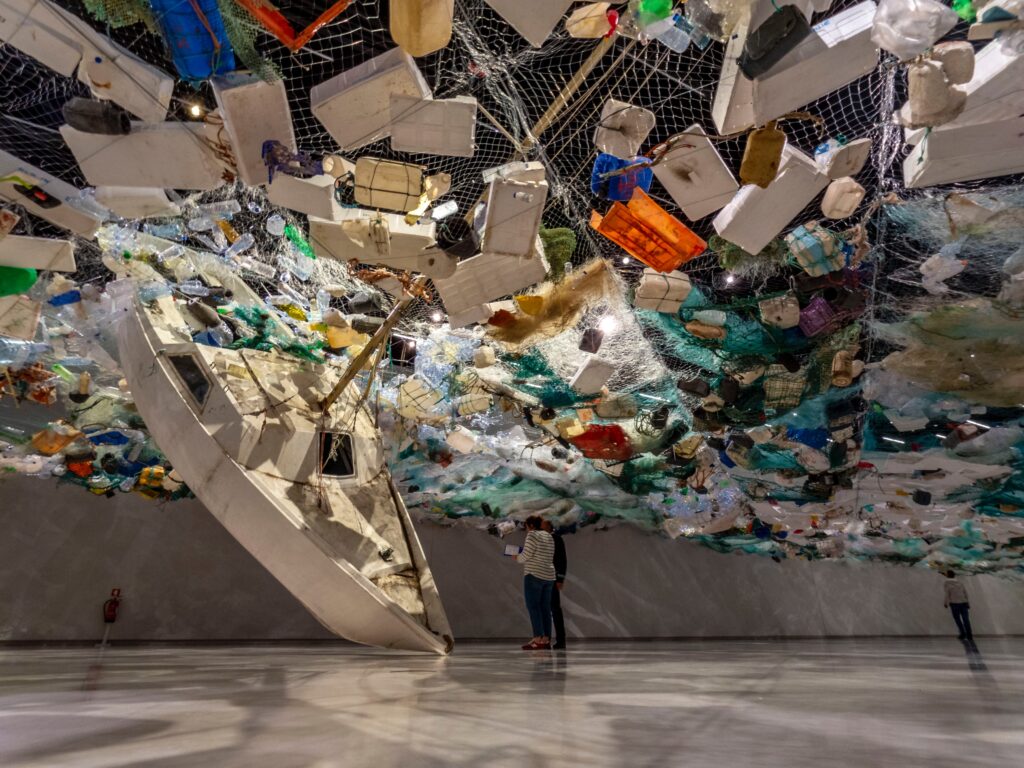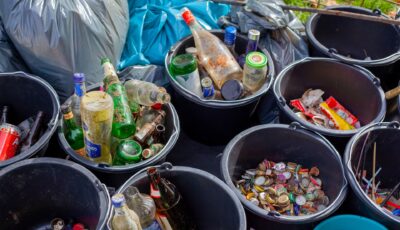Building a Zero Waste Lifestyle
ByCharlie Fletcher
At the recent UN Conference on Climate Change, leaders and scientists from around the world underlined the need for sustainability and called for widespread waste reduction. During the conference, 40 countries committed to phasing out coal by 2050, and a further 100 countries have pledged to end deforestation. These commitments seek to reduce our carbon footprint and reverse the effects of climate change.
As part of these efforts to fight climate change, people can work towards zero waste lifestyles that promote environmentally friendly waste management and reduce our global carbon footprints.
What is Zero Waste?
Waste is a major issue in the fight against climate change. Currently, 1 in 3 people worldwide is forced to dump or burn their waste. This creates toxic landfills and contributes significantly to our overall greenhouse gas emissions. To combat the harmful effects of waste mismanagement, you can choose to act proactively and lead a zero-waste lifestyle.
Living a zero-waste lifestyle isn’t easy. It requires you to plan ahead and make significant changes to your way of living. While there is no universal definition of zero-waste, almost all definitions advocate for the reduction of waste-generating products and call for greater uptake in recycling efforts.
Living a zero-waste seems challenging at first, but many people produce less than a single jar of trash per year. To achieve this, households should ensure they only purchase long-lasting appliances, make waste-conscious purchases, and find ways to grow their own food.
Energy Efficient Appliances
Our household appliances consume massive amounts of energy every day. Fridges, microwaves, dishwashers, and HVAC units are used in every home and are essential parts of modern life. These appliances use anywhere between 0.008 and 500 kilowatt-hours of energy, which means you must centralize sustainability and waste before purchasing new appliances.
While you don’t have to cut appliances out of your life, there are questions you can ask yourself to facilitate change in how you purchase white goods:
- Can the appliance be effectively recycled? One day, the appliance you purchase will break. You should check your municipality’s recycling schemes, and check the plastic used in the appliance is recyclable.
- What is the energy usage profile of the appliance? Some cheaper appliances use shocking amounts of energy to power them. When purchasing a new appliance, be sure to double-check the amount of energy it takes to power it and choose energy-efficient appliances when possible
- Is there a smart alternative? Smart appliances are designed to reduce energy usage while still providing a quality product. Sometimes these appliances are a little more expensive but are worth it if you can afford them.
- Do you need it? Some appliances are unavoidable. However, a second coffee machine or a bigger, less efficient AC unit will not align well with your zero-waste goals. Even a dishwasher, one of the least sustainable appliances in a kitchen, isn’t a necessity. If you don’t produce a large amounts of dirty dishes, can you wash them by hand? Take a hard look at what you already have and truly need and try to centralize the idea of waste when making purchases.
Grow Your Own
Nearly ½ of all fruit and vegetables produced globally go to waste. In Europe and North America, consumers waste between 95-115 kg of food per capita every year. These numbers are surprising and underline the absolute inefficiency of our food supply chain. As it stands, waste from the food industry could feed billions, yet — as we know too well — millions of people are starving every day.
If you wish to disconnect from the leviathan that is the food industry, then growing your own fruit and veg is a great place to start. It’s fairly straightforward to begin your journey into gardening, and you can rotate your crops to ensure you have food all year round.
If you’re a planner, consider the fall to be the start of your season. Most gardening begins in the spring, but doing so leaves you little time for planning. This doesn’t mean you must start in the autumnal months, but it is easiest to begin the planning stages between September-November. The key to success, according to the BBC’s Monty Don, is to plan the year and work little and often.
However, before diving into the veg patch, you should be aware of potential dangers in the garden. It’s quite hard to harm yourself or other humans through gardening, but pets and other animals can run into problems if you don’t consider animals while designing your garden. There are plenty of plants that can poison animals, and many mulches and composts can make your pets seriously ill. The best way to avoid disaster is to consult with experts in garden centers and ensure you have fencing that will keep animals out of any dangerous areas.
Fashion + Waste
Gone are the days where we buy new clothes every season. Instead, the fashion world is changing to meet the demands of its audiences, and you can too. Fashion has created climate-conscious fashion trends with which real people can engage and take inspiration. Baggy jeans, crop tops, denim, and fringes are all in vogue, and can easily be found in thrift shops. Start there rather than a big-box retailer or eCommerce site.
The trend towards climate-conscious fashion is also great news for those of us who love a good deal — you can purchase your entire wardrobe from thrift stores, and can even inject some creativity into the process by cutting, sewing, and customizing your finds. This helps reduce the amount of clothing that ends up in landfills and helps you keep your waste to a minimum — all while looking great.
Zero waste lifestyles require planning and change, but new technology like smart appliances and trends like recycled fashion are making it easier to cut down on your waste. In the future, we will all have to adopt some version of a zero-waste lifestyle, as the climate crisis will only worsen if we don’t — by changing habits to adopt a waste-conscious lifestyle now, you can make the switch to zero waste that much easier.
Charlie Fletcher is a freelance writer with a background in sociology, and a specific interest in sustainability practices, and how pollution affects certain groups of people.








